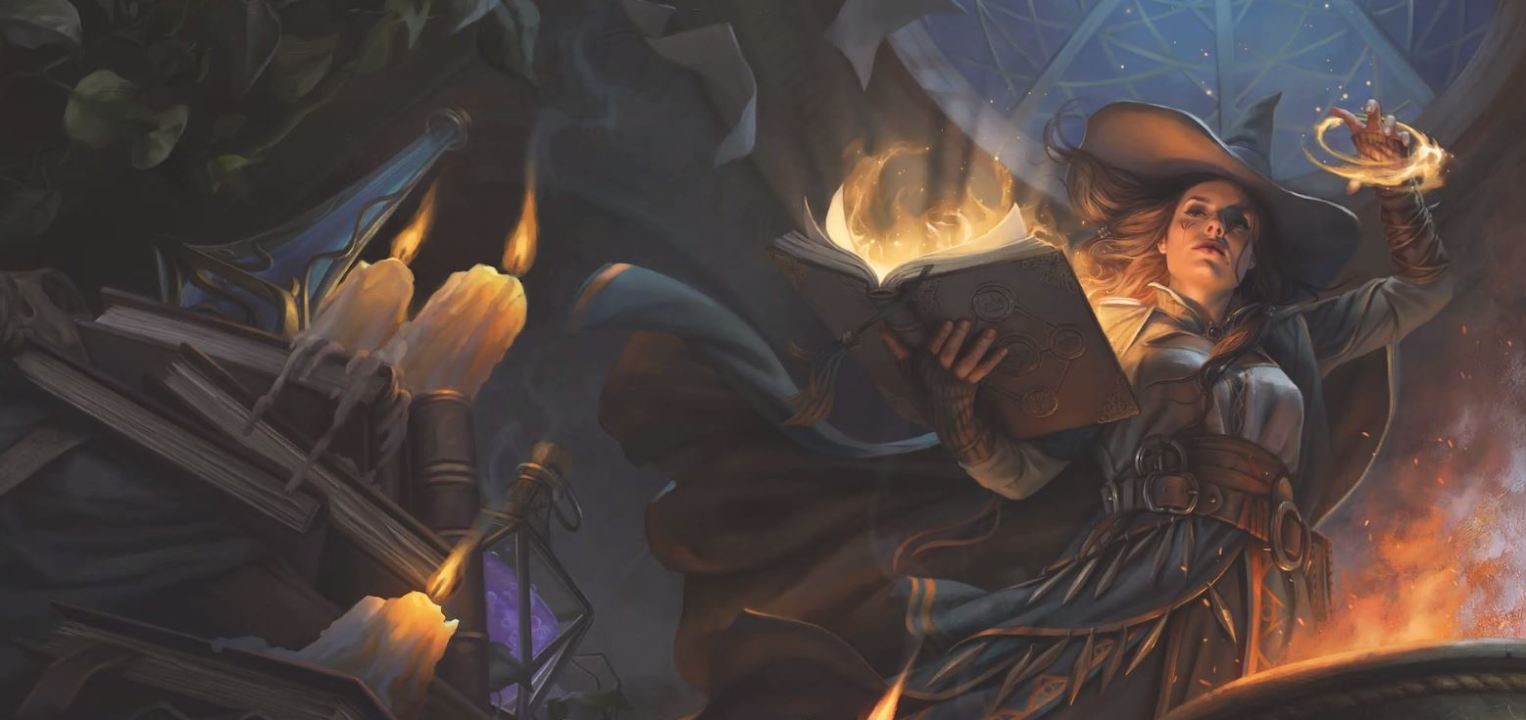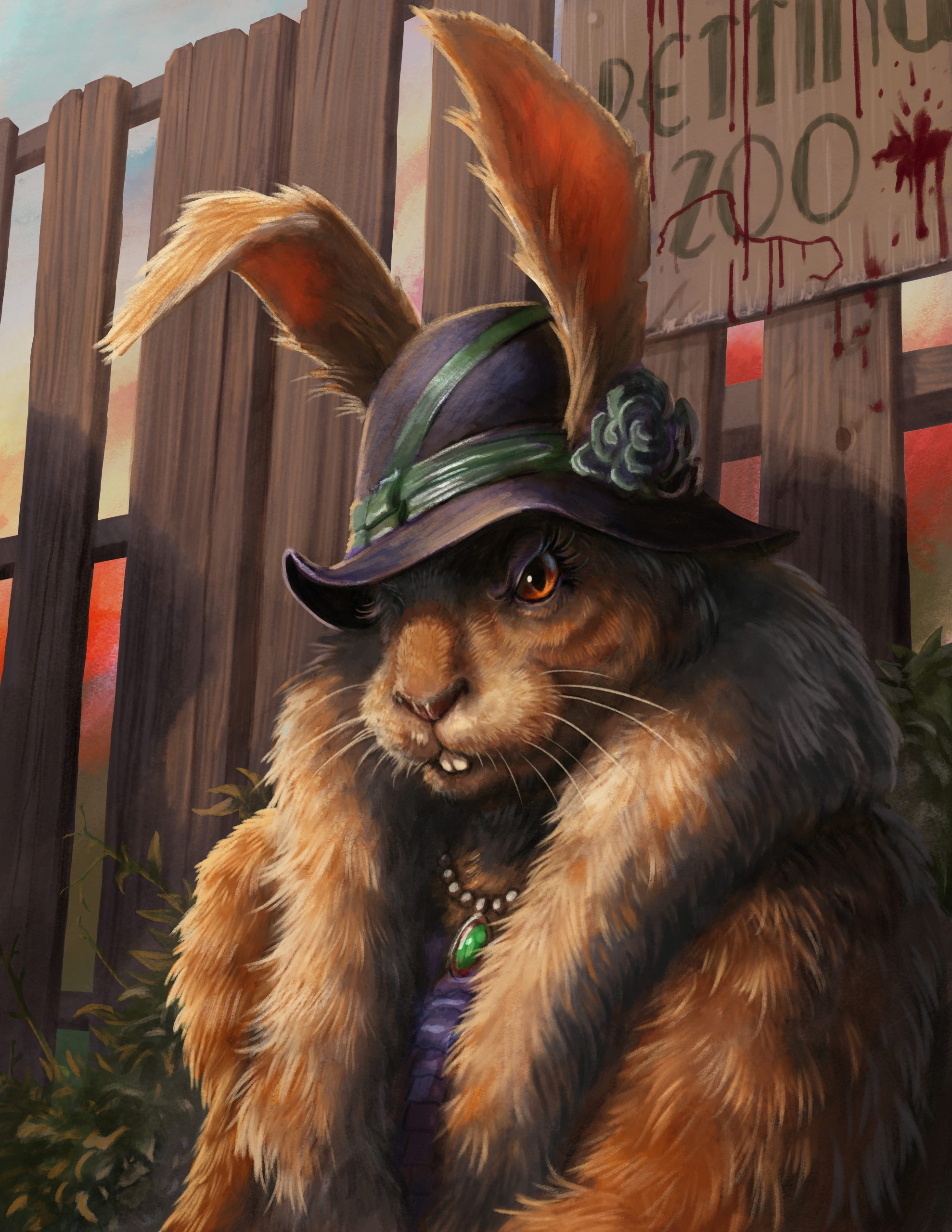Hooked on Adventure — Cultivating Chaos
Hello! We are introducing a new series here on the website. Nerdarchist Ted takes inspiration from our 3D printed terrain and miniatures to create encounters for fifth edition Dungeons & Dragons you can drop right into your game. For his first foray into this territory Ted takes a closer look at our Rural Chicken Coop and designs a fun low level 5E D&D encounter. It’s not uncommon for starting adventurers to take on work clearing out giant spiders or rescuing kidnapped townsfolk from goblins. For this encounter Ted spices things up with Abyssal forces terrorizing a rural homestead and sowing chaos. To enhance the encounter we used Dungeonfog, an online map maker and authoring tool designed for Game Masters, to create a map image for the Rural Chicken Coop. Check out Dungeonfog and use the promo code NERDARCHY to get 10% discount on your first annual and annual-CL (Commercial-License) order here.
RPG Crate Holds the Recipe for Adventure for 5E D&D
If you know anything about RPG Crate you might already be aware of their wondrous Recipe for Adventure cards. If you have watched the monthly RPG Crate game I have run for a while over at Nerdarchy the YouTube channel you may have heard me talk about them. Recipe for Adventure cards are fun index cards that allow you to take your fantasy roleplaying game to a whole new level.
A Group of Rangers is Called a Lodge
Salutations nerds! Today we’re going to be talking about rangers in fifth edition Dungeons & Dragons. Now I don’t know about you but I’ve heard them taking a lot of grief lately for being one of the objectively less powerful classes in 5E D&D, but that wasn’t always the case. I’ve also heard rangers attacked for having less of a class identity as some of the others out there, but I don’t feel like that’s true at all. So let’s delve into the woods. Let’s do some tracking and nature stuff. Let’s walk a couple of miles without it being difficult terrain and see how far out this ranger stuff goes.
Galladoria Games is Creating Painted and Unpainted Miniatures and Terrain
If you love excellently sculpted terrain and miniatures available in both painted and unpainted options then you really need to check out Galladoria Games. I first found them when they released the Mimic Invasion Kit 1. The kit includes the disguised and revealed mimic versions of items and terrain features like sleeping bags, hats, books, barrels and more. Mimic Invasion Kit 1 is a great collection. Mimic Invasion Kit 2 recently released too. The follow up set adds more fun mimics like thrones, anvils and piles of treasure.
Stealth 101 — 5E D&D 5E Skills and Skill Checks
Fifth edition Dungeons & Dragons revolves around ability scores (physical and mental character traits) and how those scores apply to proficiencies (what you’re good at). Both are represented numerically, with modifiers to any number you roll on a d20 whenever you make a skill check. Ability checks are written like this: Ability (proficiency). For example, your Dungeon Master might call for a Dexterity (Stealth) check. The reason for this is Dexterity is the applicable ability score, while your Stealth proficiency allows you to further modify the skill check. Quick disclaimer: any 5E D&D DM can require or allow any ability check or skill proficiency check for any reason, even outside this purview. This article is meant as a guide for new players and DMs to explain how skill checks work and what they look like, narratively.
WizKids Miniatures Bring Eberron: Rising from the Last War to Life
Eberron is an amazing world and campaign setting for fifth edition Dungeons & Dragons, with many outstanding areas to play in and explore. Today I want to share something about heroes, monsters and other creatures of the world and representing them on the tabletop with D&D Icons of the Realms: Eberron: Rising From The Last War from WizKids. WizKids has been creating fantastic miniatures for a very long time. I have been a fan from the beginning. With Eberron hosting a number of miniatures that typically fall outside of the typical realm of what normal fantasy roleplaying games get into, we get a number of miniatures in the Eberron: Rising From the Last War set likely to be unique to our collection.
Top 10 of All Time
Just like at Nerdarchy the YouTube channel with its thousands of videos celebrating tabletop roleplaying games like Dungeons & Dragons, here on the website we’ve got thousands of posts too. Since 2014 we’ve been writing and posting new content here many times each week and this post marks the 2,064th publication. Since we constantly strive to improve our craft and recognize what readers, viewers and fans want we took a look at all the published posts to try and glean some useful info. The results track with what we already knew to some extent but with much sharper image came into view that’ll help us create more of the kind of content people enjoy. All this aside we thought it would be fun to share the Top 10 Most Popular Posts of All Time from Nerdarchy the Website. So let’s get into it.
Speculating on Mythic Odysseys of Theros for 5E D&D
During our weekly meeting this afternoon we worked on planning videos, including one discussing the most recent Unearthed Arcana 2020 — Subclasses, Part 3. While looking over the playtest material the most intriguing one for me is the Circle of the Stars for druids. One of the subclasses features in particular, Starry Form, caught my attention before I even got to the part with any game mechanics.
“While in your starry form, you retain your game statistics, but your body takes on a luminous, starlike quality; your joints glimmer like stars, and glowing lines connect them as on a star chart.”
This vivid description immediately conjured images from Magic: the Gathering Arena, the online version of the incredibly popular card game. The newest set, Theros Beyond Death highlights the Constellation keyword and there’s a strong starry element featured in artwork and graphics from the set. That’s when it struck me — maybe we’ll see these and other Unearthed Arcana content in an official fifth edition Dungeons & Dragons book inspired by Magic: the Gathering. And after a little bit of digging around I believe that’s definitely the case.
Gamer Community and Group Identity
Group identity is important to tabletop roleplaying games. Heck, it’s important to any group of people. We as gamers see ourselves as a community. Whether they admit it or not, people need community. “Man is by nature a social animal; an individual who is unsocial naturally and not accidentally is either beneath our notice or more than human,” Aristotle wrote in Politics. The lone wolf is actually quite a rare phenomenon. Now, if you want I can go deep into scholarly literature about collective identity and start quoting research, but I won’t. After all, while I may be working toward my PhD, such academic stuff isn’t everyone’s cup of meat.
Wringing More from Halaster’s Tumultuous Templates and Mighty Conjurations for 5E D&D
Wow, D&D Spell Effects: Halaster’s Tumultuous Templates and D&D Icons of the Realms: Spell Effects: Mighty Conjurations are a mouthfuls for sure. If you are like me than you really dig using battle mats, miniatures terrain and effects to get more visual with your fifth edition Dungeon & Dragons or other roleplaying games. So I want to tell you about these two wonderful sets from WizKids. Halaster’s Tumultuous Templates and Spell Effects: Mighty Conjurations both allow you to add these lasting effects at your table so players and Dungeon Masters alike will have no question where any effects are, ending any potential dispute.














